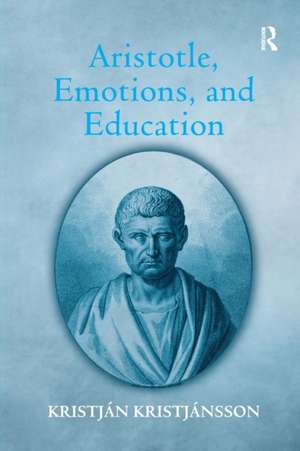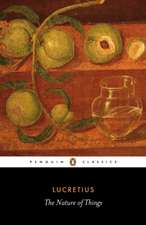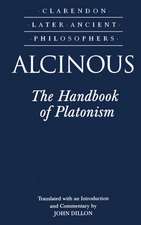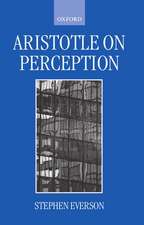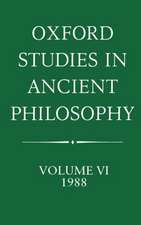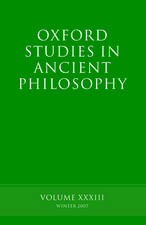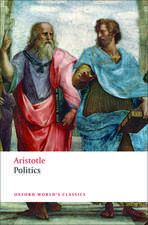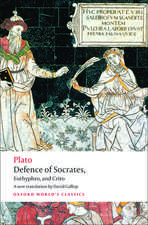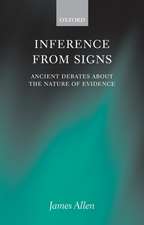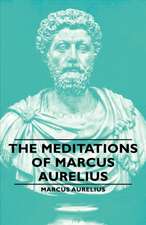Aristotle, Emotions, and Education
Autor Kristján Kristjánssonen Limba Engleză Paperback – 11 noi 2016
| Toate formatele și edițiile | Preț | Express |
|---|---|---|
| Paperback (1) | 469.34 lei 43-57 zile | |
| Taylor & Francis – 11 noi 2016 | 469.34 lei 43-57 zile | |
| Hardback (1) | 1055.21 lei 43-57 zile | |
| Taylor & Francis – 28 iul 2007 | 1055.21 lei 43-57 zile |
Preț: 469.34 lei
Nou
Puncte Express: 704
Preț estimativ în valută:
89.84€ • 97.62$ • 75.51£
89.84€ • 97.62$ • 75.51£
Carte tipărită la comandă
Livrare economică 21 aprilie-05 mai
Preluare comenzi: 021 569.72.76
Specificații
ISBN-13: 9781138254077
ISBN-10: 113825407X
Pagini: 204
Dimensiuni: 156 x 234 x 20 mm
Greutate: 0.45 kg
Ediția:1
Editura: Taylor & Francis
Colecția Routledge
Locul publicării:Oxford, United Kingdom
ISBN-10: 113825407X
Pagini: 204
Dimensiuni: 156 x 234 x 20 mm
Greutate: 0.45 kg
Ediția:1
Editura: Taylor & Francis
Colecția Routledge
Locul publicării:Oxford, United Kingdom
Cuprins
Contents: Introduction: Fusing heart and head; Aristotelian moral development; Aristotle and the 'paradox of moral education'; Aristotle on the non-expendability of emotions; Teaching justified anger the Aristotelian way; Emotional intelligence versus Aristotle; Emulation: an Aristotelian virtue for the young; Aristotelian friendship between parents and children; What can Aristotle teach us about generosity?; Aristotelian agreeableness and teaching; Is teaching an Aristotelian praxis?; Conclusion; Bibliography; Index.
Notă biografică
Kristján Kristjánsson is the author of Social Freedom: The Responsibility View (1996) and Justifying Emotions: Pride and Jealousy (2002) as well as various papers about morality, emotions and education in international journals.
Recenzii
'Kristján Kristjánsson has written a splendid book on education by way of understanding Aristotle and his treatment of the emotions and their cultivation. His analysis is insightful and well worth reading regarding any one of its three components, education, or Aristotle, or the emotions, but he artfully weaves the three themes together, always keeping in mind the central educational aims of the book. My own interest was especially peaked by his extended treatment and criticism of the mantra of 'emotional intelligence', with apt contrasts with Aristotle's much more impressive development of the idea that emotions are cognitively rich, steeped in ethics, teachable, trainable, and self-cultivatable. His discussion of anger (why one ought to teach justified anger in the classroom), for example, is both excellent and persuasive.' Robert C. Solomon, University of Texas at Austin, USA 'One of the most exciting recent developments in ethical theory has been the revival of an Aristotelian approach to understanding moral agency and association focused on the study of virtue and character. There can also be little doubt that his pioneering work in a wide range of prestigious philosophical and educational journals has established Professor Kristján Kristjánsson as a leader in the field of serious attempts to apply contemporary Aristotelian and virtue ethical scholarship to problems of educational philosophy and moral education. In this light, this welcome new exploration from Professor Kristjánsson of the diverse educational implications of Aristotle and virtue ethics clearly represents a major contribution to contemporary philosophy of education.' David Carr, University of Edinburgh ’Kristjánsson's book is well written... An especially strong interest in Aristotle or Aristotelian scholarship is not necessary to gain something from this study and the chapters on current philosophy of education are, I think, especially informative and interesting even if read indepen
Descriere
In a formidable display of boundary-breaking scholarship, Kristján Kristjánsson analyzes and dispels misconceptions about Aristotle’s views on morality, emotions and education that abound in the current literature - including claims of the emotional intelligence theorists that they have revitalized Aristotle’s message for the present day. This is an arresting book that deepens the contemporary discourse on emotion cultivation and one that will excite any student of moral education, whether academic or practitioner.
